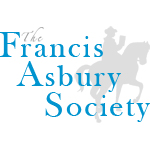Scripture reading: John 6:60–71
Too Much To Swallow
Whoever feeds on my flesh and drinks my blood has eternal life . . .
For my flesh is true food, and my blood is true drink. (John 6:54–55)
Communion is that moment in corporate worship when we are invited to symbolically swallow Jesus. In doing so, we must also ultimately swallow his words—even those we might find difficult to chew. Of all the sermons Jesus preached, perhaps the most offensive was the one he preached in the synagogue at Capernaum (John 6:25–71). In fact, the reaction was so strong that many of his disciples that day decided to call it quits (v. 66). This was just too much to swallow, so they stopped following Jesus and began to look for another Messiah more to their liking, one a little more, well, palatable. What kind of sermon would produce such a negative reaction? What did Jesus say that was so hard to stomach? There are at least three elements in this remarkable sermon that made it difficult for many and impossible for some to digest.
,. He exposed their hypocrisy. Though Jesus knew how to preach messages that left people feeling warm, affirmed and reassured, this was not one of those sermons. In this message, he boldly exposed the true motives of those sitting on the pews that day. You are seeking me, not because you saw signs, but because you ate your fill of the loaves (v. 26). “I know why you’re in church today,” Jesus was saying. “You aren’t here to worship God and do his will. You are here because you got a free meal yesterday when I fed the five thousand, and now you’re back for more free handouts! You don’t want God. You only want his gifts!”
,. He questioned their salvation. Imagine a pastor in an American church, standing in the pulpit on a Sunday morning, looking his congregation in the eye and saying: There are some of you who do not believe (v. 64). Obviously Jesus had never attended a course entitled “How to Win Friends and Influence People.” But Jesus loved his listeners enough to tell them the truth. He could read their hearts: he knew many had serious doubts, and others had only partial commitment. He was simply helping his congregation that day understand that no one can find genuine assurance of salvation who does not keep the Great Commandment by loving God with all their heart, soul, mind and strength.
,. He made outrageous and audacious claims about himself. Undoubtedly the biggest stumbling stone in Jesus’ message that day was what he said about himself:
- I am the bread of life. (v. 35, 48, 51)
- Everyone who looks on me and believes has eternal life, and I will raise him up on the last day. (v. 40)
- No one can come to me unless the Father who sent me draws him. (v. 44)
- What if you were to see the Son of Man ascending to where he was before? (v. 62)
- Unless you eat my flesh and drink my blood you have no life in you. (v. 53)
Little wonder that the congregational response to Jesus’ sermon was a disgruntled, This is tough teaching, too tough to swallow (v. 60, The Message). But that is just the point; you must swallow this teaching, literally! Again, Communion is that moment in corporate worship when we are invited to symbolically swallow Jesus: Take, eat, this is my body given for you. Ultimately, the only way to accept the Gospel is to swallow it, to internalize the body and blood of our Lord. Christ in you, the hope of glory (Colossians 1:27).
The fact is that the authentic gospel of the New Testament remains extremely offensive to human pride, and nobody who preaches it faithfully can expect to escape at least some degree of opposition. —John Stott
point to ponder • Where are you finding it difficult to “swallow” the Gospel?
prayer focus • For the Church to not dilute the Gospel to make it more pal- atable to post modern ears.
